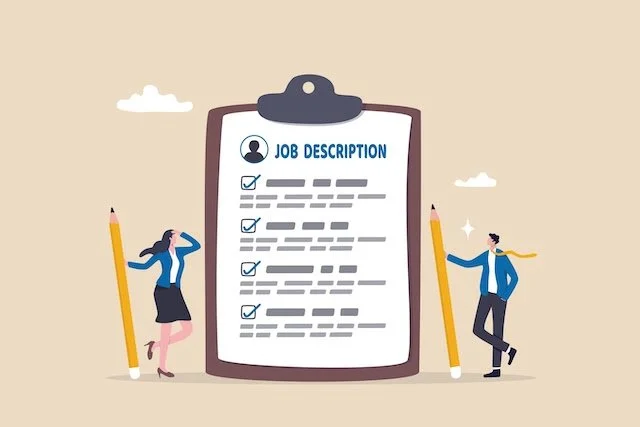Job description - relevance and irrelevance
"Never say, 'That's not my job.' That oozes arrogance and laziness. Chip in and help with what needs to be done even if it is not your responsibility. Even when nobody's watching." Inspirational Quotes
Job Descriptions. Most every working person has one. They are indeed a requirement if you are to employ a person. After all, what are you hiring a person to do? Why is that position needed in a company? What problem does it solve and what strengths, skills, attributes, and character should the person filling it possess? Deep thought and analysis ought to be given to those questions before an organization creates a job description or JD.
JD's should generally outline what is expected of a position. A prospective employee ought to be able to read a job description and have clarity of what is required. They should be able to imagine themselves in the role. Job descriptions should go beyond tasks expected. They should include company mission, vision, and values. Indeed, many job descriptions are written like advertisements to attract talent including things like benefits such as flexible hours, or hybrid work in an office or from home. Those in the Human Resources field are particularly skilled (or should be) at creating JD's. Unfortunately, many small businesses do not have these people on the team. The JD, therefore, is left to the leader. Make the job description relevant. Do the work and get it right but don't be consumed by it.
I could spend an afternoon showing you my job descriptions over a long career then telling you stories of how I stepped outside of them and did what was necessary for the sake of my boss and or the organization. I find that leaders spend an abundant amount of time creating job descriptions - trying to nail down every task one might complete. It's akin to taking an exam, trying not to miss any task in order to receive an 'A,' or, for employment purposes, striving for the perfect JD. I've seen hours spent creating JDs which turn irrelevant once a person is on board either because they were poorly written, the person didn't quite fit the position and a company alters the job to the person, or the demands of the organization exceed that which is described in the JD.
Companies evolve and so too the positions within them. What Charles does today may be different or irrelevant tomorrow. Companies are lean and therefore, must ask of their people to step up when the time comes to do the work required. Companies are teams and teammates cross job description boundaries to help others in need. Companies should be exceptional. They should hire and retain exceptional people, and exceptional people go the extra mile. They step outside of their JD to do the work needed. It is in these moments, when the needs of the company and or a teammate make the JD irrelevant.
Do the work. Meet the demands of what a job description requires. Ask and answer the hard questions before you present a JD to the world but don't fall in love with it. Form and foster an organization of exceptional teammates who find themselves out there on the extra mile taking the organization to new heights guided by a noble cause and an inspIring vision.
The job description is relevant but also irrelevant.
Make it Personal!
Rob
Rob Campbell

